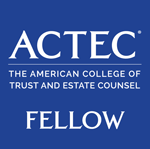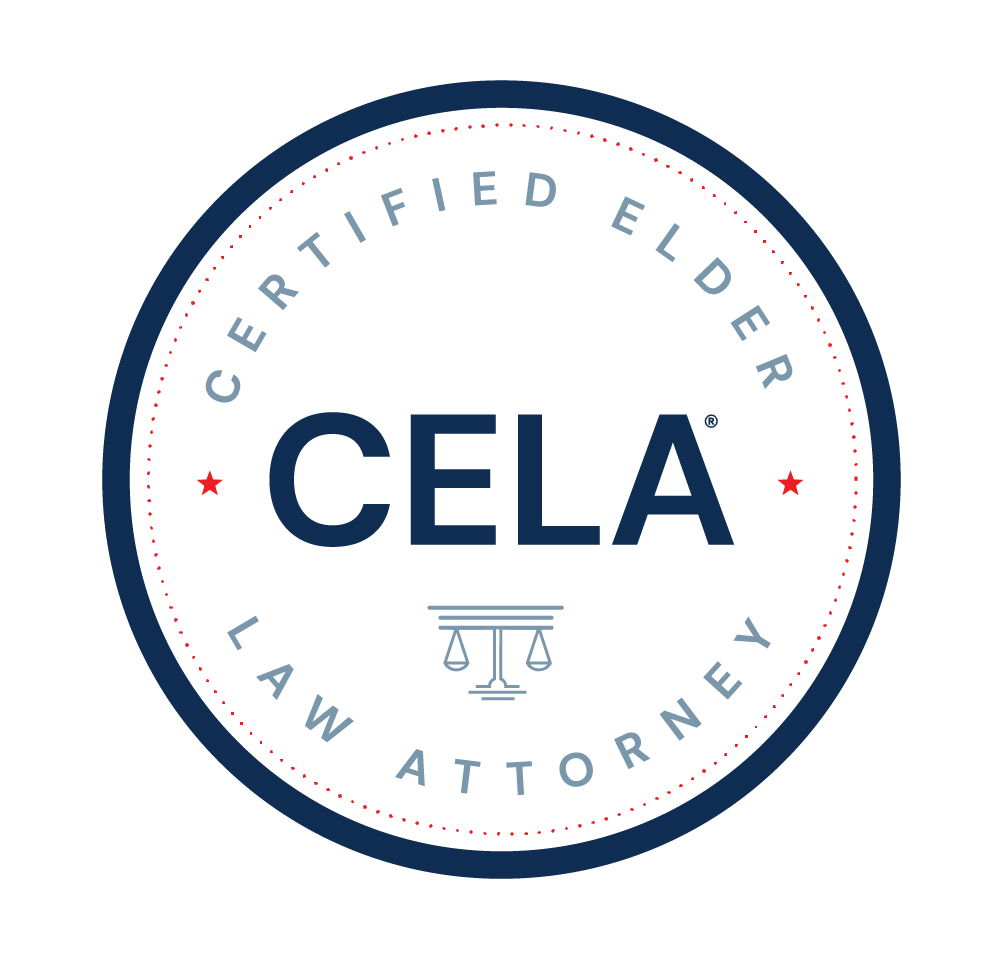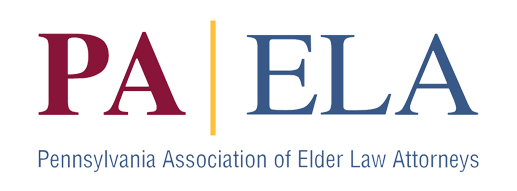FAQ
What is a living trust? Is it right for me?
What is a living trust? Is it right for me?
A living trust, or inter vivos trust, is a trust that is created while the person is alive instead of one that is established at a person’s death or according to the terms of someone’s will. The principal benefit of creating a trust is to help the testator’s family avoid the expense and delay associated with probate court proceedings following the testator’s death. The Uniform Probate Code streamlines the probate process. However, since it is not used in Pennsylvania, it may be best to establish a living trust in order to avoid Pennsylvania’s complicated probate process.
Even if the testator establishes a living trust, a will is still needed for any property that is not transferred to the trust. Without a will, any property that is not conveyed to the living trust, will be left to the testator’s nearest relatives in accordance with Pennsylvania law. A living trust can help the testator lower estate tax in Pennsylvania depending on the type of trust that is created.
What taxes will apply to my estate after my death?
What taxes will apply to my estate after my death?
After the testator’s death, an inheritance tax is imposed in Pennsylvania when property is bequeathed to individuals who were not close relatives of the deceased person. The tax rate is dependent on how close a relationship existed between the beneficiaries and the testator. A closer relationship results in a lower tax rate. An inheritance tax is levied when property is left by a resident of Pennsylvania or a nonresident who was the owner of real estate or tangible personal property situated in the state.
In Pennsylvania, there are inheritance tax exceptions for specific types of property. For example, there is an inheritance tax exemption for farmland, provided that the land is left to family members, and continues to be used for agricultural purposes for seven years. Furthermore, small family-owned businesses are exempt from inheritance tax if they have been in operation for a minimum of five years, are left to family members, and remain in existence for an additional seven years.
How can I minimize the taxes for my estate?
How can I minimize the taxes for my estate?
The inheritance tax in Pennsylvania is not levied on the gross value of the testator’s estate. When preparing the tax return, the testator’s executor or administrator will be able to deduct any debts owed, funeral expenses and any other costs involved in settling the estate. Another deduction that may be available is a family exemption in the amount of $3,500. In addition, certain kinds of property are entirely exempt from the tax.
For example, there is an exemption for property that is owned jointly by a husband and wife. Thus, if both spouses own all of their property jointly, after the death of the first spouse, the property will not be subject to inheritance tax. There is also an exemption for life insurance proceeds and benefits from several retirement plans.
How should I plan for my minor children?
How should I plan for my minor children?
Under the Pennsylvania Estate Law, which is also called the Decedents, Estates and Fiduciaries Code, only a surviving parent can nominate a “guardian of the person” of a child. Guardianship of the person refers to the individual who has custody of the child, who makes decisions regarding where the child will reside, the religion to which the child will be exposed, the kind of medical treatment the child will receive, and other issues that parents normally resolve. However, any person can nominate a “guardian of the estate” of a child. Any person may, in accordance with the testator’s will, appoint a guardian of real or personal property that is left to a minor in several situations.
Among these are cases in which the property is left to a minor under the testator’s will, the property consists of insurance proceeds on the testator’s life, or it is derived from a lifetime gift from the testator to the minor. Sometimes, one parent does not wish to have the other parent secure the child’s assets after the former has died. One way to accomplish this objective is to nominate a guardian of the estate, thereby permitting any property left to the minor from the deceased parent’s estate to pass to the guardian. Thus, the surviving parent will not have access to the property.
What is the simplified probate procedure for small estates in Pennsylvania?
What is the simplified probate procedure for small estates in Pennsylvania?
The process of administering an estate in Pennsylvania usually is not lengthy or costly. In some cases, however, avoiding the formal probate process may result in savings. There is a special process for small estates in Pennsylvania that facilitates the transfer of property left by a decedent without the need for formal probate. In order to use the procedure, the executor must make a request in writing with the Court, which may grant the executor the authority to transfer the assets without having to go through probate. The executor can use the simplified probate process in Pennsylvania if the value of the decedent’s personal property does not exceed $50,000. While there may be some savings in utilizing the small estate process, this process does not eliminate the requirement to pay any creditors and taxes that may be due. The estate will need to be distributed in accordance with the terms of the decedent’s will. If the decedent owned real property at the time of his or her death, formal probate will be required to distribute the property regardless of its value.
Additionally, under Pennsylvania law financial institutions can release a maximum of $10,000 to surviving family members without the approval of the probate court provided the funeral expenses have been paid. Like the small estate process, this procedure does not eliminate the need to pay any creditors and taxes that may be due. In addition, employers can pay a maximum of $5,000 to the surviving spouse, surviving children, or distant relatives without authorization of the probate court.
Does probate administer all of the decedent’s property?
Does probate administer all of the decedent’s property?
Probate usually applies only to assets the decedent owned in his or her sole name at the time of death. Property with a beneficiary designation passes to the designated beneficiary without the need for probate, and property held jointly with rights of survivorship passes automatically to the surviving joint owner. While this may appear advantageous because of the probate avoidance, there are a number of factors that must be considered before titling any property jointly. Tax implications must be considered. Additionally, any marital, health or financial problems of the joint owner may put the property at risk. It is important to review your account ownerships and beneficiary designations to make sure they are coordinated with your comprehensive estate plan.
What is the difference between Medicare and Medicaid?
What is the difference between Medicare and Medicaid?
Medicare is a federal health insurance program for individuals who are 65 years of age or older, or who are disabled. It was intended to address the high cost of medical care that seniors face in comparison to the rest of the population. It is not a need-based program, but rather one that is based on entitlement. An individual is entitled to Medicare because that person or that person’s spouse paid for their use of the program through Social Security taxes. Individuals disabled prior to age 22 may be able to claim Medicare on the earnings record of a disabled, retired or deceased parent. Under Medicare Part A, an individual can receive basic coverage for staying in a hospital, a nursing facility at the end of the hospital stay, and home health care. Medicare Part B covers physician visits, laboratory tests, preventive services and some out-patient medical services such as medical equipment and supplies, home health care, and physical therapy. Medicare Part C, also known as Medicare Advantage Plans, offer coverage for the above services through a private insurance company. Medicare Part D is prescription drug coverage that can help to defray the cost of prescription medications.
Medicaid is a joint federal and state benefit program that covers low-income people. Some people are eligible for both Medicare and Medicaid. Medicaid is administered at the state level and each state has different rules that apply. Medicaid offers certain mandatory benefits such as inpatient and outpatient hospital services, nursing facility services, home health services, physician services and laboratory and x-ray services. States have the option of covering additional services such as prescription drugs, physical and occupational therapy, preventive services, dental services, personal care, home health services for chronic conditions and hospice.
What is a special needs trust?
What is a special needs trust?
A special needs trust is a trust created to provide funds to supplement public benefits for an individual with a disability. Funds in the trust do not count as resources for purposes of eligibility for public benefit programs such as Medical Assistance, Medicaid, Supplemental Security Income, and / or Mental Health and Intellectual Disability (MH/ID) benefits. For individuals with special needs, these benefits are often critical in providing essential services and supports. Because many public benefit programs are means tested, special needs trusts play an important role in maintaining eligibility for benefits while still providing resources to meet needs not covered by benefit programs.
There are two broad categories of special needs trusts. The first is third-party trusts, also known as supplemental needs trusts. These trusts are created and funded by someone other than the trust beneficiary. These trusts are commonly used by parents and grandparents to provide for the long term financial security of loved ones with special needs. These trusts can be funded while the trust creator is still living, or they can be funded with an inheritance left to the trust.
The second category is for self-funded trusts. These trusts are used to hold resources belonging to an individual with a disability. All expenditures from these trusts must be for the sole benefit of the trust beneficiary. There are two kinds of self-funded special needs trusts. The first are self-settled trusts created by a parent, grandparent, legal guardian or court. Beneficiaries of self-settled trusts must be under the age of 65 at the time of creation of the trust, and no assets can be added to the trust after the beneficiary reaches age 65. On death, any funds remaining in the trust must be used to repay Medicaid benefits received by the trust beneficiary. The second type of first-party trusts are pooled trusts. Pooled trusts are established by charitable organizations and individuals with disabilities can join pooled trusts by completing a Joinder Agreement and funding the trust with their resources. The funds in the trust are pooled for investment purposes, but the accounts within the trust are separately maintained for the account beneficiaries. When the beneficiary dies, any funds remaining in the trust stay in the pool to benefit other individuals with special needs.
What is a spendthrift trust?
What is a spendthrift trust?
A spendthrift trust is a trust that restricts the beneficiary’s ability to access or obligate trust principal. It can be used to protect a beneficiary who might not use the trust funds wisely or who has a lot of outstanding debts. A spendthrift trust can be drafted to give the trustee total discretion in how to use the trust funds, or it can be drafted with specific terms about how the trust funds are to be used. Either way, the beneficiary cannot control how the trust funds are used.
Spendthrift trusts can provide important protection for beneficiaries who do not manage money well, might be victims of designing person, or who have significant debts. Spendthrift trusts should be carefully drafted to address the concerns and needs of the beneficiary.
What is probate in Pennsylvania?
What is probate in Pennsylvania?
Probate is the legal process used to administer the estates of decedents. State laws vary significantly, and the process also varies depending upon the assets involved, so it is important to get legal advice. In Pennsylvania, the probate process is not complicated. It involves having an Executor or Administrator appointed to administer the estate and eventually distribute estate assets to the beneficiaries. If the decedent had a will, then the assets will be distributed according to the terms of the will. If the decedent did not have a will, then the estate assets will be distributed according to Pennsylvania intestacy laws.
Before the Executor or Administrator distributes the estate assets, certain things must be done. All interested parties must be given notice of the estate administration, the estate should be advertised to put creditors on notice that they have one year to submit claims, debts and expenses must be paid, final income taxes for the decedent must be filed, any required inheritance or estate tax returns must be filed and the tax paid, and a formal or informal accounting must be made to the beneficiaries. In Pennsylvania, inheritance tax applies to most assets. The tax rate is 0% for charities and spouses, 4.5% for lineal descendants, 12% for siblings and 15% for all other beneficiaries.
In most cases, use of a trust to avoid probate will not result in any cost savings in the administration process. The trust administration process in Pennsylvania is very similar to the probate process.
What is a will contest?
What is a will contest?
A will contest occurs during the probate process and involves a challenge to the validity of the will. To contest a will, the individual must be an interested party. Interested parties include beneficiaries under the terms of the will and any individuals who would have received an inheritance if there was no will. Will contests are expensive and emotionally difficult for everyone involved.
Wills cannot be challenged just because an interested party doesn’t like the terms of the will. Rather, evidence must be presented to prove that the will is not valid for some reason. Reasons a will could be invalidated include that the testator did not have the mental capacity to understand the terms of the will, that there was undue influence on the testator by someone, that there some kind of fraud involved in the execution, or that the will was not properly executed.









